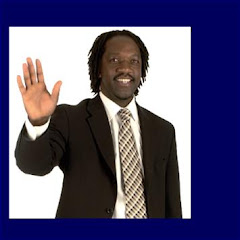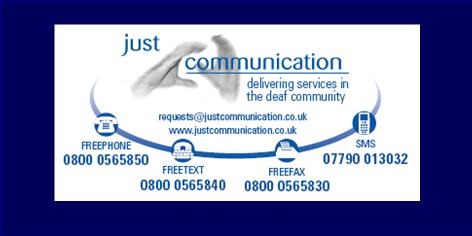Charities are preparing themselves for challenging times. Vital support services for the vulnerable people we represent are in danger of being reduced and in some cases completely eradicated, due to government spending cuts. At the same time charities are in competition with one another to raise awareness of extremely important issues. The challenge for us all is how to stand out from the crowd and galvanise our supporters to act.
In May, the National Deaf Children's Society (NDCS) launched its Save Services for Deaf Children campaign in response to local government cuts to specialist educational support for deaf children. We reached more than 16 million people with our message and made local authorities sit up and take notice. Here we share with you how we built and launched the campaign.
Saving services
At the beginning of this year, we began to get reports from parents of deaf children about rumours of funding and job cuts to specialist support. Particularly concerning were cuts to specialist teachers of the deaf, who are crucial in deaf children's success, helping them to develop good communication skills and making sure that classroom teachers know how to teach a deaf child.A very important part of our role at NDCS is to help deaf children and their parents to get the support they need, whether this is working on individual cases with councils, or campaigning nationally and regionally for change. As soon as these reports began to emerge, we began planning to protect these services.
We knew that to build our battle plan, we needed to get detailed information on what was happening on the ground. So, we ran an online survey of parents, promoting it through our e-newsletters, on our website and our online forum Parent Place.
740 parents responded with details that enabled our local teams to dig deeper and find out what was really going on.
Clearing the smoke
Despite some excellent intelligence from parents, we soon encountered significant resistance from local authorities reluctant to share details of their plans and even the cuts they had already begun to make. We needed more robust information to get an accurate, national picture of the cuts - and the clock was ticking. We issued 45 local authorities with detailed Freedom of Information (FoI) requests, using our expertise to craft questions that would generate the clearest answers.
We wanted to know about the current level of support being provided to deaf children, whether this had been reduced recently, or if there were any plans to cut it. This meant being very specific with our questions to avoid ambiguous answers. Once the FoI requests were issued we could establish a timeline for the launch of a national campaign: all councils would be legally required to respond to our requests within 28 days.
Building our case
Although 11 councils failed to meet the FoI deadline, when combined with written correspondence from other local authorities, we had enough data to create a national picture of cuts to support for deaf children.We were shocked at the results: almost one in five of the local authorities we had data for (141) had made a cut to educational support for deaf children. Quite simply these cuts should not have been happening – central government had ring-fenced the education budget it gave to local authorities. This gave us a clear call to action for the secretary of state for education Michael Gove to launch an investigation into these cuts.
We also wanted to create a number of ways for the public and members to get involved. We created a static map depicting the cuts with the Office for National Statistics and created an interactive online map where parents and other members could report cuts to deaf children's support in their area.
We created template letters for people who wanted to support the campaign to send to their MPs and councillors asking them to challenge local cuts decisions. We also created a guidelines booklet for parents to fight cuts in their area, downloadable from our website.
Bringing the campaign to life
Our regional teams had already begun to work closely with parents in areas where we knew cuts had been made, such as Stoke-on-Trent, where the number of teachers of the deaf has been halved in two years.Many parents had compelling stories, including one mother whose two-year-old son was having support from his teacher dramatically cut. He is at a crucial stage of developing his speech and communication and support for his teacher of the deaf is now vital. His mother Katy says she will consider moving to get her son the support he needs.
Stories like these not only galvanise MPs and councillors into action, but are essential to secure effective media coverage, bringing the experiences of deaf children, young people and their families to life.
Lift off
With our statistics, case studies, visuals and calls to action in place, we launched the campaign in May.The results:
• Our findings made national news, prompting calls and emails to pour in from local authorities keen to talk to us about the future of support for deaf children.
• Our spokespeople were interviewed from Cumbria to Cornwall, appearing on TV, on the radio and in print.
• The campaign has reached 16 million people so far.
• Two local authorities have subsequently reduced the severity of cuts to deaf children's services and we are continuing to push for more councils to urgently review their decisions and protect this vital support.
This is a live campaign, with more reports of cuts coming in from our beneficiaries. We are continuing to lobby councils, galvanise our supporters and get media support for our cause.
Top five tips to build a strong media campaign
• Be very clear about why people should be concerned about your cause. Let them know why it is so important.• People power. Our power comes from the people we support and represent. Their experiences, stories and passion are invaluable to any campaign. It is also crucial that we provide the tools, confidence and support that empower our beneficiaries to speak out.
• The devil is in the detail. Be thorough, challenge the information you are given and be prepared to stand by your findings.
• Don't pull your punches. Decisions are being made now that will have a huge impact on the people we support. If someone isn't playing fair, don't be afraid to name and shame them.
• Take people with you. Be clear how your activity fits with your organisational strategy. Clarify what you are trying to achieve, who should to take action and what they need to do to help you achieve your goal. Know how you will measure the success of your campaign.
Victoria Shooter is the director of communications at the National Deaf Children's Society (NDCS)






No comments:
Post a Comment